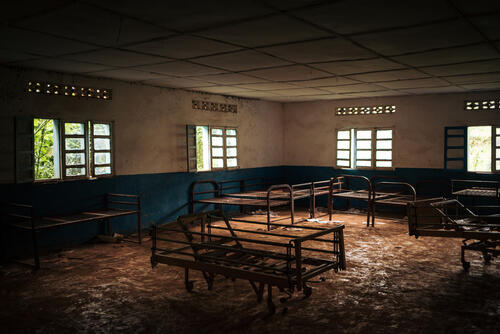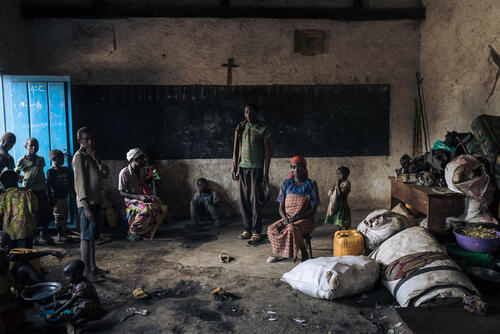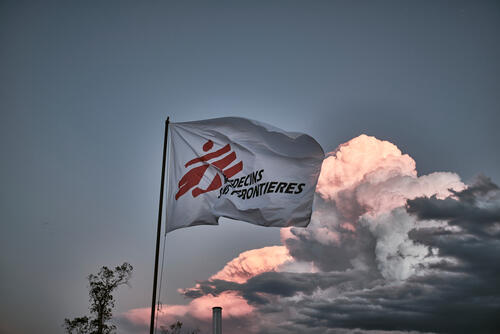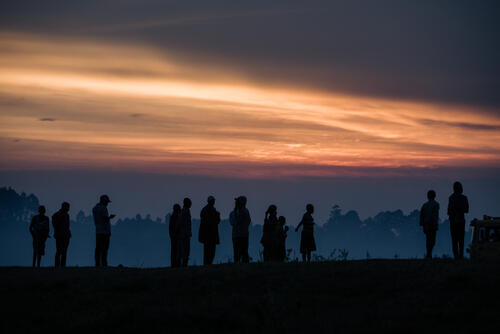- High levels of violence and a sense of impunity from warring parties have forced MSF to close projects in parts of northeastern DRC
- The halt in Nizi and Bambu, Ituri province, comes four months after MSF vehicles were attacked, leaving two staff badly wounded
- The lack of guarantees from warring parties, and no commitment to investigate the incident by the authorities, have forced us to withdraw.
Kinshasa – Four months after a convoy of vehicles belonging to Médecins Sans Frontières (MSF) came under fire by unidentified armed men in Ituri province, Democratic Republic of Congo (DRC), MSF has announced that we will close our projects in Nizi and Bambu due to a lack of security guarantees from all parties to the conflict.
Two MSF staff were severely wounded in the attack, which took place on 28 October 2021 on the road between Kobu and Bambu in Ituri province’s Djugu territory.
Following the incident, MSF called on all parties to the conflict to condemn the attack and to respect international humanitarian law and protect medical facilities, health workers, ambulances, patients and the wounded. We also asked the authorities to launch an investigation into the incident, but this has not happened.
We regret this decision very much, since this will have dire consequences for people with acute needs, but we cannot risk lives to save lives.Olivier Maizoué, MSF programme manager for DRC
“We have been left with little choice but to close our projects,” said Olivier Maizoué, MSF programme manager for DRC. “The risks are simply too high and therefore it is impossible for MSF to return to those areas with confidence.”
“We regret this decision very much, since this will have dire consequences for people with acute needs, but we cannot risk lives to save lives,” said Maizoué.
MSF will continue to provide medical and humanitarian aid elsewhere in Ituri province, including Drodro and Angumu, and will continue to support local health authorities in Nizi and Bambu by donating medicines and medical supplies to cover the months ahead.
“We are, however, painfully aware that this one-off donation will not compensate for our departure and will adversely affect those people in dire need of healthcare,” said Maizoué.
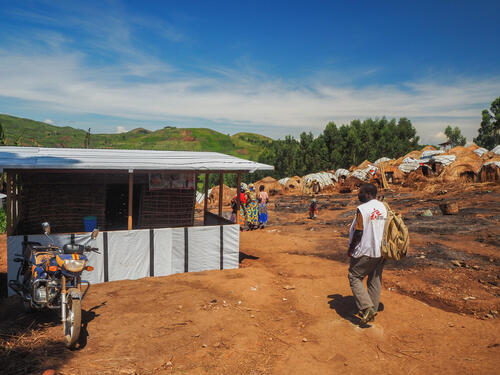
All parties to the conflict are supposed to facilitate unimpeded access of humanitarian aid for civilians in need, and respect and protect humanitarian personnel.
We therefore maintain our request for an investigation to be carried out by the authorities, and call for all warring parties, as well as all people in a position of influence, to work on ensuring an environment that allows people to receive the aid they so desperately need.
The attack in October was not the only recent incident to impact MSF teams in Ituri province. In June 2021, the main referral hospital in Boga town, which was supported by MSF, was severely damaged during fighting in the town. At least 12 people lost their lives, while several buildings, including the intensive care unit, were burnt down, and the hospital’s pharmacy and stocks of medical supplies were looted.
We are deeply disturbed by the climate of impunity that reigns today in this part of DRC... We know that impunity fuels yet more violence.Jérome Alin, MSF head of mission
“We are concerned by the numerous attacks and looting of health facilities, and we are deeply disturbed by the climate of impunity that reigns today in this part of DRC,” said Jérome Alin, MSF head of mission. “We know that impunity fuels yet more violence.”
MSF teams in other areas of DRC have witnessed similar incidents aimed at medical and humanitarian workers. To voice their concern and show solidarity with their colleagues and with everyone affected, MSF staff in DRC will stage a one-day protest on 23 March 2022. On that day, only lifesaving medical activities will continue.
MSF teams started working in Nizi and Bambu in June 2018, providing medical services to some 471,000 people affected by years of conflict, with a focus on paediatric healthcare, including malnutrition treatment. MSF teams also provided clean drinking water and constructed latrines and showers for displaced people in the area.
Elsewhere in Ituri province, MSF supports two Ministry of Health hospitals, 12 health centres, three health posts and 32 community health sites in Drodro and Angumu, treating people for childhood diseases, malnutrition and malaria, caring for victims of sexual violence and providing mental health support. In recent weeks, MSF teams have also worked with hospitals in Bunia to treat war-wounded patients.
MSF has been working in DRC for more than 40 years and currently runs projects in 20 of the country's 26 provinces, providing medical care to victims of conflict and violence, to people displaced from their homes, and to people suffering from disease epidemics including cholera, measles and HIV. MSF’s emergency response teams are on standby throughout the country to respond to epidemics, natural disasters and conflict.



